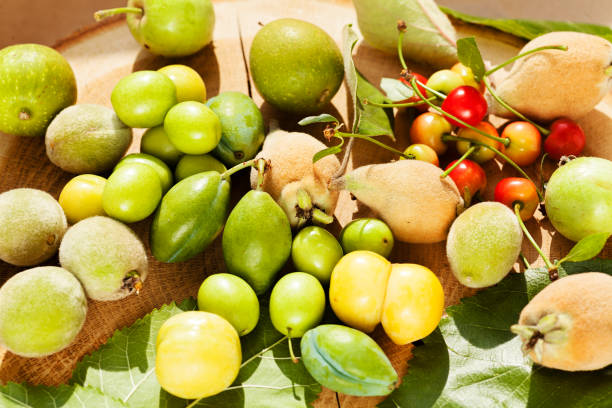What Are Žižole?
Žižole, also known as jujube, red date, or Chinese date, are small, sweet fruits native to Asia but grown in various parts of the world, including the Mediterranean. Their reddish-brown, wrinkled appearance resembles dates, but their crisp texture and apple-like flavor set them apart. Used for centuries in traditional medicine, they are now gaining popularity as a modern-day superfruit.
Nutritional Value of Žižole
They are low in calories and packed with vital nutrients:
- Vitamin C: Boosts immunity and skin health
- Antioxidants: Protect against free radicals
- Potassium: Supports heart health
- Dietary Fiber: Aids digestion
- B Vitamins: Improve energy levels and metabolism
One serving (100g) of fresh žižole contains about 79 calories, 20g carbohydrates, and almost no fat.
Health Benefits of Žižole
1. Strengthens the Immune System
Thanks to their high vitamin C content and antioxidants, they support the immune system, helping fight off colds and infections.
2. Promotes Better Sleep
Traditional Chinese medicine uses it as a natural remedy for insomnia. They contain compounds that calm the mind and promote restful sleep.
3. Aids Digestion
Rich in dietary fiber, they help maintain a healthy gut, prevent constipation, and support overall digestive health.
4. Supports Heart Health
Potassium and antioxidants in them help regulate blood pressure, reduce cholesterol, and improve cardiovascular function.
5. Enhances Skin Health
The combination of vitamin C, antioxidants, and minerals promotes collagen production and protects the skin from aging and environmental stress.
How to Eat Žižole
- Fresh: Crisp and sweet, like apples—perfect as a healthy snack.
- Dried: Similar to dates; ideal for snacking or adding to oatmeal, cereals, and desserts.
- Teas & Infusions: Sliced and steeped in hot water for a calming tea.
- Cooking: Used in jams, syrups, and even savory stews in various cuisines.
Frequently Asked Questions (FAQs)
Q1: Are they the same as dates?
A: No, although sometimes called “red dates,” žižole (jujube) are a different fruit. They have a distinct flavor and texture, especially when fresh.
Q2: Can you eat žižole seeds?
A: No, žižole seeds are hard and not edible. Enjoy only the fruit’s flesh and discard the pit.
Q3: Are they good for diabetics?
A:They have a lower glycemic index than many fruits, but dried žižole can be higher in sugar. Fresh žižole in moderation may fit a diabetic-friendly diet. Always consult a doctor.
Q4: Where can I buy žižole?
A: Look for them at Asian grocery stores, health food shops, farmers’ markets, or online retailers. They’re available fresh in autumn and dried year-round.
Q5: Do žižole have side effects?
A: Generally, they are safe for most people. However, consuming them in excess may cause digestive upset for some. If you have allergies or are on medication, check with a healthcare provider.
Conclusion
Žižole are more than a nostalgic treat—they’re a nutrient-rich superfruit with a host of health benefits. Whether you enjoy them fresh, dried, or in tea, adding it to your diet is an easy way to boost your wellness. Give this ancient fruit a try and rediscover its unique flavor and power!
